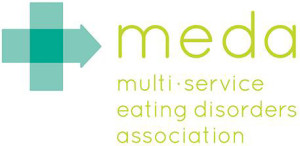- Calls to this hotline are currently being directed to Within Health, Fay or Eating Disorder Solutions
- Representatives are standing by 24/7 to help answer your questions
- All calls are confidential and HIPAA compliant
- There is no obligation or cost to call
- Eating Disorder Hope does not receive any commissions or fees dependent upon which provider you select
- Additional treatment providers are located on our directory or samhsa.gov
Interview with Beth Mayer, LICSW, Executive Director at the Multi-Service Eating Disorders Association (MEDA)
Interview with Beth Mayer, LICSW, Executive Director at the Multi-Service Eating Disorders Association (MEDA)

-
For a person who is just beginning their recovery journey, what encouragement could you offer to them?
Seeking recovery is one of the most difficult parts of the overall recovery process. Seeking recovery is already a huge accomplishment that proves you are stronger than your eating disorder. From here, you will be surrounded by friends, family, and a recovery team who all care about you and will help you every step of the way. If this is not feasible, try to find other people that have been through a recover that you can gain strength from.
-
What aspects of treatment can make it difficult to maintain a positive body image?
During treatment a patient may begin to experience weight and body changes. As this happens it can be difficult for them to maintain a positive body image and it can result in a tremendous amount of anxiety. Distraction techniques are very important at this time.
-
How can body image evolve or be transformed during the recovery process?
Because negative body image and low self-esteem are often significant contributing factors in the development of an eating disorder, it is important that they are addressed in the recovery process. Many treatment programs use Cognitive Behavioral Therapy (CBT) or Dialectical Behavioral Therapy (DBT), techniques that are helpful to change negative self-talk that contribute to negative body image.
Overall, body image is transformed from negative to positive when patients learn to value themselves for what their body allows them to do rather than for their aesthetic value. In other words, bodies are tools; Like tools, not all bodies look the same but all are useful for doing different things. There is no such thing as a “good” or “bad” body type. Developing positive body image may be difficult at first, but it is a pivotal aspect to the recovery process.
-
What hope could you share with an individual who has constantly struggled with low self-esteem?
MEDA believes that people can fully recover. Look to others for hope. Having low self-esteem makes people feel alone and can cause them to isolate themselves. It is important for individuals to realize that they are part of a community, and are not alone in their struggles. Hearing stories and recovery tips from people who have also faced similar problems around low self-esteem can be a great source of hope.
-
How can building a positive body image help set a foundation for long-term recovery?
One of the most important foundations to set is changing ones thoughts on how the body looks to what the body can do. Once someone can acknowledge how powerful their body is, there becomes a sense of pride. With this pride, individuals can start challenging themselves to see what they are capable of. Instead of focusing on one’s body, they can start enjoying what their body is capable of doing!

